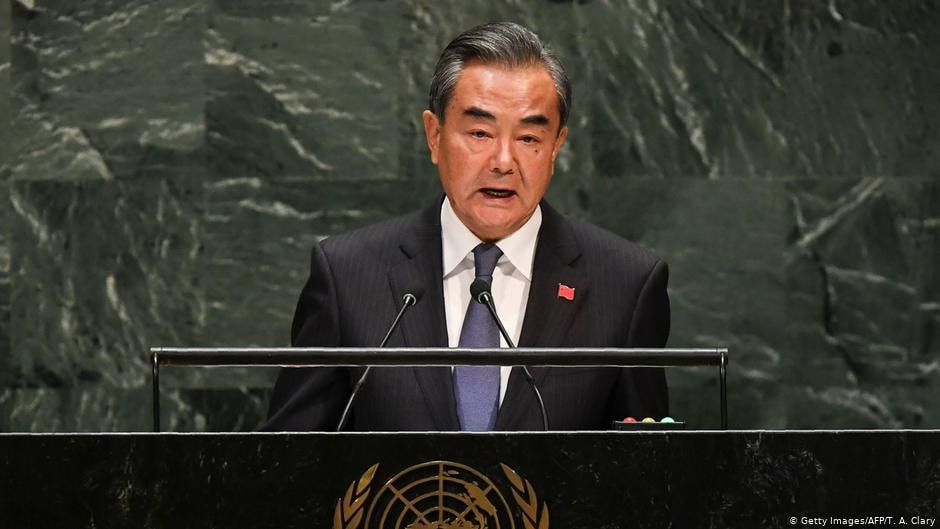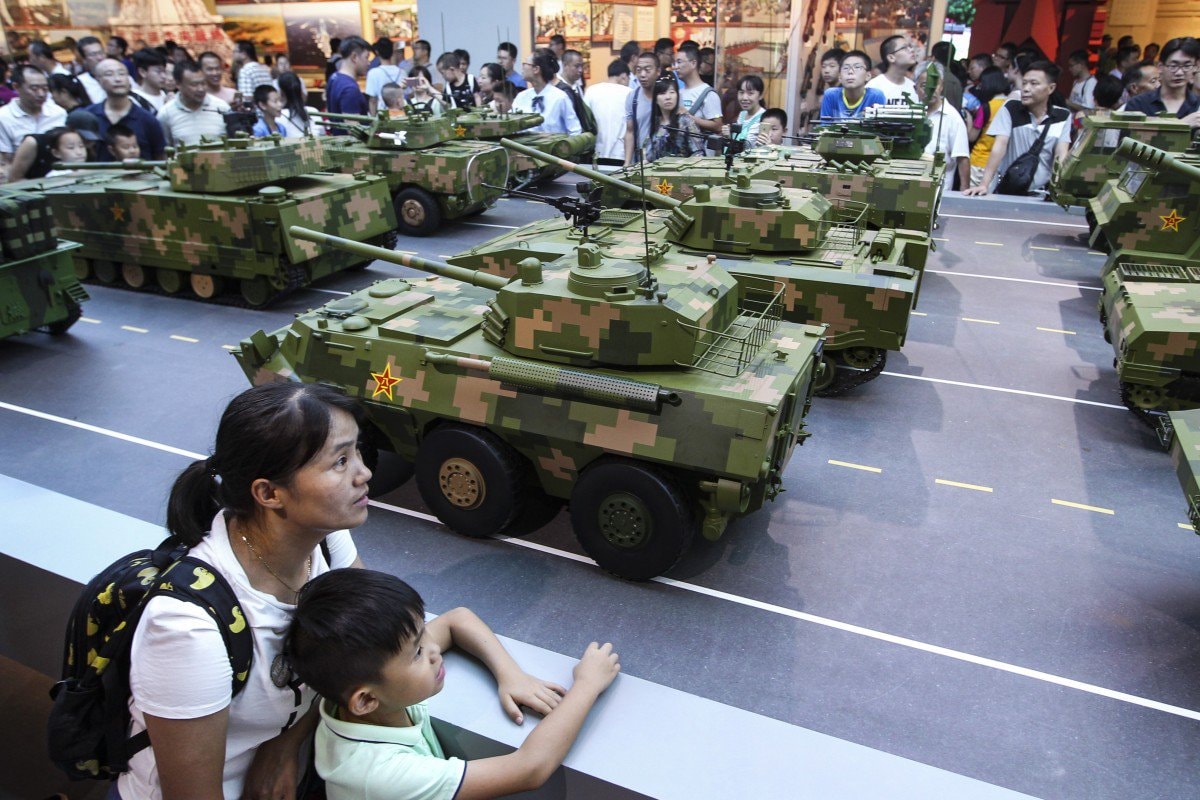Arms Trade Treaty: A political pawn in the hands of the US and China?
(Baonghean) - Five months after US President Donald Trump announced that he would withdraw the US from the Arms Trade Treaty (ATT), China announced that it would soon join the Treaty. This contradictory action is full of Beijing's intentions.
America wants out, China wants in
China's Foreign Ministry announced on September 28 that the country will quickly join the Arms Trade Treaty (ATT), which US President Donald Trump announced in April that he would withdraw from.
Speaking at the United Nations General Assembly on September 27, Chinese State Councilor and Foreign Minister Wang Yi said Beijing had initiated legal procedures to join the ATT. The Chinese Foreign Ministry later announced that the country would quickly join the treaty “as soon as possible,” because “it is China’s responsibility” and also to demonstrate Beijing’s determination to “support multilateralism.”
 |
Chinese Foreign Minister Wang Yi announced his intention to join the ATT at the UN General Assembly. Photo: AFP |
The Arms Trade Treaty was adopted by the United Nations General Assembly in 2013 to regulate the global arms trade. There are currently 104 countries participating in this treaty. The previous US President, Barack Obama, signed the treaty, but the document has not been ratified by the US Senate and is opposed by the National Rifle Association. But in April, President Donald Trump announced that he would withdraw the US from the ATT.
China has never released figures on its arms exports. But according to the Stockholm International Peace Research Institute (Sweden), between 2014 and 2018, China was the world's fifth-largest arms exporter. During that period, China sold weapons to 53 countries, with Pakistan the largest, followed by Bangladesh. This is considered a calculated move by China to assert its name in the global arms market, where Beijing is still considered a "new player".
Political intentions
In fact, the Arms Trade Treaty (ATT) is being used as a political tool by both the US and China to achieve their own goals. In April, President Donald Trump called the ATT “badly flawed” and a threat to American liberties such as “the Second Amendment right to keep and bear arms, and handing over American sovereignty to foreign bureaucrats.”
The reason given by Mr. Trump is also the argument of the National Rifle Association (NRA) and some conservative groups to oppose ATT. And it should be mentioned that the NRA spent 30.3 million USD to support Mr. Trump's presidential campaign in 2016. Therefore, it is easy to see that the US President favors the interests of the NRA, especially in the context of the US entering the presidential election next year.
 |
| China has emerged as the world's fifth-largest arms exporter. Photo: SCMP |
However, that is not the main leverage for the White House owner to refuse to accept the ATT. According to the Arms Control Association, an organization supporting the ATT, this agreement "does not affect a state's domestic gun control laws or other gun ownership policies," or in other words, does not affect the purchase of weapons in the United States. The ATT only requires member countries to "establish and maintain a national control system" to manage the trade in conventional weapons.
The treaty covers tanks, artillery, fighter jets, warships and missiles, as well as hand-held weapons. Global sales of conventional weapons run into the tens of billions of dollars a year, with the United States, China and Russia being the largest exporters.
The ATT calls for tighter monitoring of arms trade in cases where weapons could be used to commit human rights violations, acts of terrorism or violence against women and children. The treaty has no actual sanctions, essentially naming countries that violate it. Still, UN spokesman Stephane Dujarric called the ATT a “landmark achievement in ensuring accountability in international arms transfers.”
That means, the Donald Trump administration and gun advocacy groups in the US are not necessarily too worried about the prospect of ATT "making things difficult" and preventing their businesses. Is ATT actually a reason for Mr. Trump to once again deny the achievements of his predecessor Barack Obama's administration, and more broadly, the opposition Democrats, before the race to the White House next term?
As for China, it is easy to see that Beijing has chosen this year's United Nations General Assembly session to make a politically charged commitment, both to strengthen its internal affairs and to restore its national image amid the US-China trade war that has yet to find a way out.
In an editorial shortly after Foreign Minister Wang Yi announced China’s intentions at the UN forum in New York, Xinhua did not hesitate to attack the US for withdrawing from the ATT. “The US’s pursuit of unilateralism and frequent withdrawals from treaties, including the US announcement of the ATT in April, have had a negative impact on global strategic balance and stability as well as international arms control and non-proliferation of systemic weapons,” wrote author Kong Jun.
The article also did not hesitate to declare that China's concrete steps... also demonstrate that China is taking concrete actions beyond empty words to maintain multilateralism and build a community with a shared future for mankind."
Clearly, China is attempting to build an image of a responsible power with international obligations and tasks, which has been more or less damaged in the confrontation with the US over the past two years. It is also a way to market 'Made in China' weapons products to the global market in the future. And regardless of the decision, the two powers, the US and China, have taken advantage of ATT to achieve their goals./.

